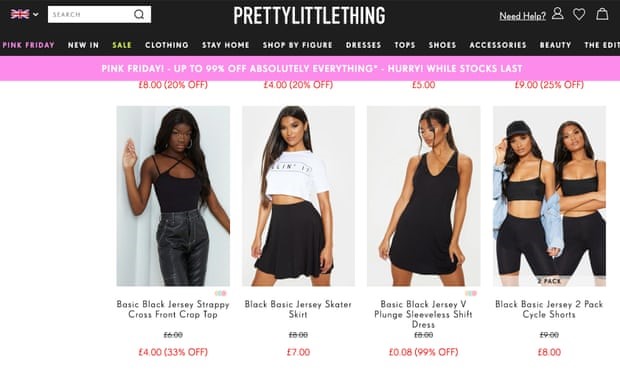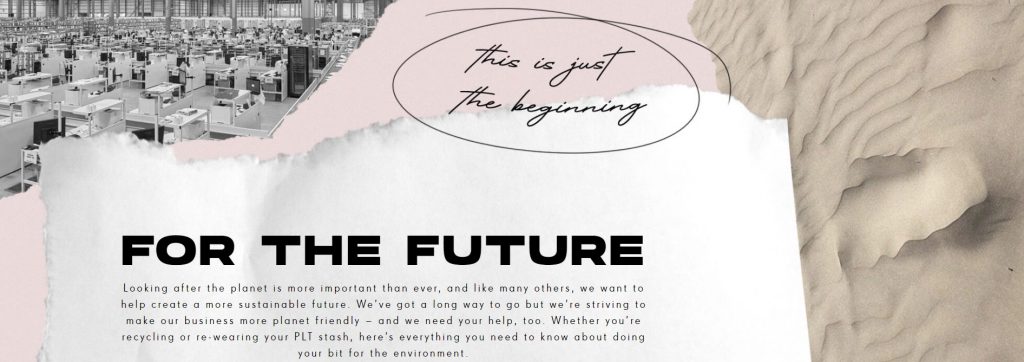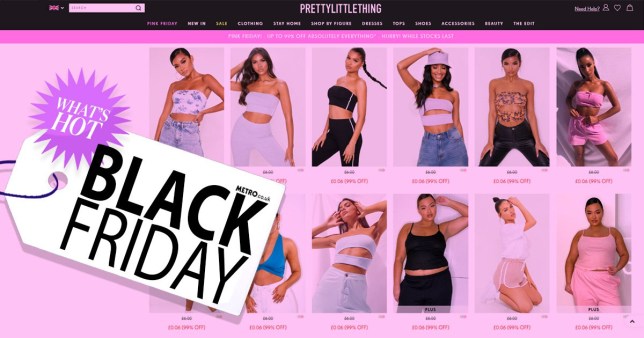By Isobel Parker
BRITS were predicted to spend £6bn on Black Friday this year and every brand wants you to spend your money with them by offering a host of unmissable offers and discounts.
But at what point do brands go too far, meaning Black Friday becomes a PR nightmare as oppose to a financial success? [1] A clear example of a Black Friday blunder this year came from fast fashion giant Pretty Little Thing, which offered shoppers an ‘up to 99% off everything’ sale leaving Twitter and the headlines in uproar, perhaps unsurprisingly. Dresses were being sold for as little as 8p and bikini bottoms were available for 5p; these prices would make anyone assume that someone along the production line was being exploited and the sustainability of such a campaign must be questioned.

From a company running a 99% off sale you would imagine that corporate social responsibility was unheard of. However, on googling Pretty Little Thing CSR, you are met with a website page titled Sustainability. The page explains how PLT ‘babes’ can do their bit for the environment, by treating their denim right, making it last longer or by taking part in the PLT ‘ReGain’ project by sending the company their old clothes to recycle and receive a discount on their next purchase. With fashion contributing to 10% of global Co2 emissions every year and the average person throwing away 31.75kg of clothing per year, how can PLT host this sale and then claim to be fully behind sustainability? [2]

This could be seen as an example of greenwashing, using CSR to mask social irresponsibility and covering up potential malpractice by papering over the cracks of corporate wrongdoing. However, in the days of social media a web page about sustainability is not enough to avoid a Twitter backlash.
Black Friday seemed like a dark day for Pretty Little Thing’s PR with earned and shared media being extremely negative, with mainstream newspapers such as the Guardian sharing their shortcomings. We would expect this to be a major hit in terms of the company’s reputation bank-however, on second glance it appears shoppers were still not deterred and the company managed to generate engagement with over 100, 000 people on a singular giveaway tweet. Although there is a growing movement towards sustainable fashion across the world, it seems it will take more than environmental outrage to deter Black Friday bargain hunters.
#prstudent

